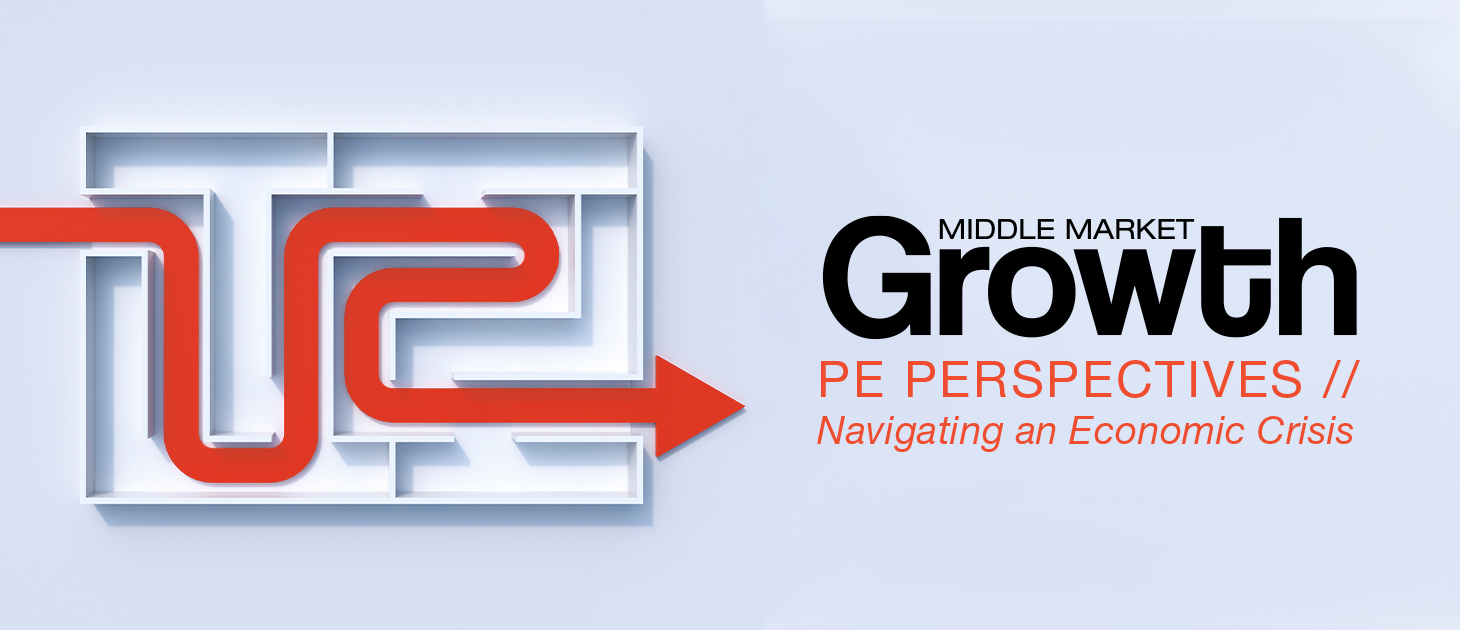Navigating an Economic Crisis: Q&A with Kian Capital
David Duke, managing director, business development, at Kian Capital, shares how his firm is navigating fallout from the coronavirus and his view of the market.


David Duke
Managing Director, Business Development, Kian Capital
Offices: Atlanta and Charlotte
Industry focus: Consumer, services, specialty manufacturing and value-added distribution
Investment criteria: $10 million to $100 million in revenue; $2 million to $15 million in EBITDA
Website: www.kiancapital.com
Middle Market Growth spoke with David Duke by phone on March 25.
Q. How is Kian working with its portfolio companies amid the economic turmoil caused by the coronavirus?
Like a lot of us in the private equity community, our first step was to secure the well-being for everybody. We’re working remotely and our management teams all have their own plans in place for ensuring the safety and health of employees. Most of that is in process and being done. We’ve been inwardly focused with our management teams on a day-by-day and real-time basis around various different topics related to the resources that they need.
Clearly one of the resources that businesses are going to need is liquidity. The impact of this is pretty broad and deep, and our portfolio is not immune. For some businesses, we’re seeing immediate impact; others will have some impact, but we won’t necessarily know until the next 45 to 60 days. For all businesses, we’re spending time around cash forecasting, liquidity resources and working with our lenders, whether that be a real-time need, or planning for the next couple of quarters on Option A, B and C around availability with current credit arrangements and what might be available above that.
“It seems like everybody is locking arms here metaphorically to try to come up with solutions. I hope that puts us in a better position to come out of this downturn at a fairly quick pace.”
We’re looking at various cost-cutting strategies. That requires spending a lot of time with customers and with our vendors to see what we can pull forward and what we can push out. So far, we’ve seen very good willingness to work with us on the customer and vendor fronts because everybody is impacted by this and realizes there’s some level of shared sacrifice that needs to take place.
Q. How has your deal sourcing been impacted?
In general, like a lot of groups and intermediaries that I talk to, we’re seeing a big pause at the moment.
In the next 30 days, something would have to be right down the center of the fairway for us to take our eye off of our main priority—our portfolio—and refocus on a new opportunity. In the coming weeks, that could loosen up and we will certainly keep our eyes open for opportunities.
At the same time, in the market deal flow has very much dried up, and I’ve seen that at an increasing rate over the last two weeks. We were running at somewhere around 80 deals a month—so, 20 deals a week. In the first week at the beginning stage of the coronavirus spread, that went to maybe 15 deals and then it halved again. Then last week and this week, a few deals have been trickling in here and there. For deals that we already had in process, the investment bankers for the most part have said we have to hit the pause button. That’s not necessarily because the business is suffering, but just because there’s so much uncertainty that both sellers and buyers want to wait and see. You’re seeing that trickle through the deal market generally.
We’re hearing from investment bankers that even for deals in later stages, there’s just the reality of logistical barriers from a diligence standpoint. There are certain things that require physical diligence that you can’t do when everybody is sheltering in place. In certain deals, even if the buyer and seller are willing, some deals just can’t be done until we get through this phase.
I’m spending probably about 60-70% of my time on the phone with our investment banking partners just talking with them about what they’re hearing. Across their client portfolio, they’re hitting the pause button. Certain deals that are far along in process that might be under letter of intent are pushing forward, but at a slow clip. I talked to one or two bankers that have something that was closing. They were hoping that would actually happen, but it’s still to be determined whether they get it across the finish line in the next two weeks. For the most part, I think everyone’s in a similar position.
Q. How do you expect this crisis to impact dealmaking and financial markets over the next 12 months?
We’re in the early innings, so it’s pretty hard to speculate. It’s fairly apparent that certainly in Q2 things are going to be very slow. We could see a dynamic where the restructuring and distressed M&A world ramps up, and I think a lot of firms with those resources are ramping up, in anticipation of special situations transactions. I think that’s certainly something you’ll see happen in Q2 and Q3.
I think everybody’s hope is that when we get on other side of this, there will be some level of pent-up transaction volume that will come to market. Will that be at a lower rate than the previous quarter? It’s really too hard to tell. But going into this, we continue to hear from investment bankers that pitch activity was strong and sellers were interested in exploring opportunities—whether that be privately held, which is what we focus on, or private equity-owned. What you hope is that comes back close to the same level, but it’s really hard to tell at this stage what the full impact is going to be.
Q. How does the investment climate right now compare to what it looked like in the early days of the 2007-09 financial crisis?
In many ways, it’s more challenging. You have the analogy of boats being in the harbor and when all the water went down, all the boats went down, too. It is hitting all aspects of the economy and there’s a real health concern that’s embedded in all of this that will have some impact on how we behave, versus just a financial market-driven crisis that slowly started to have an impact across wide swaths of the economy. On one hand, I think this is more challenging because of the speed and breadth at which it’s happening. The financial crisis was more of a slow burn.
I’ve been looking for some positive green shoots in all of this. One thing I believe is true is that there’s more liquidity in some other markets, specifically in the nonbank finance market. More and more of those players are up and running with loads of capital. The few that I’ve talked to have said they’re very much in business and excited to be a solution to the problem. That hopefully will be something that is meaningful to the middle market.
I’m speculating when I say this, but the fact that we’re experiencing it to some extent with our customers and vendors and everybody is impacted here, there’s going be some level of shared sacrifice to get through this. What you hope, and what I think will be the case, is that there will be more and more creative solutions that come at a more rapid pace across the economy than you had in the 2007-09 period. That started with financial markets and slowly expanded, and it was harder to point a finger at. It seems like everybody is locking arms here metaphorically to try to come up with solutions. I hope that puts us in a better position to come out of this downturn at a fairly quick pace.
Read how other middle-market private equity firms are navigating the economic crisis.


